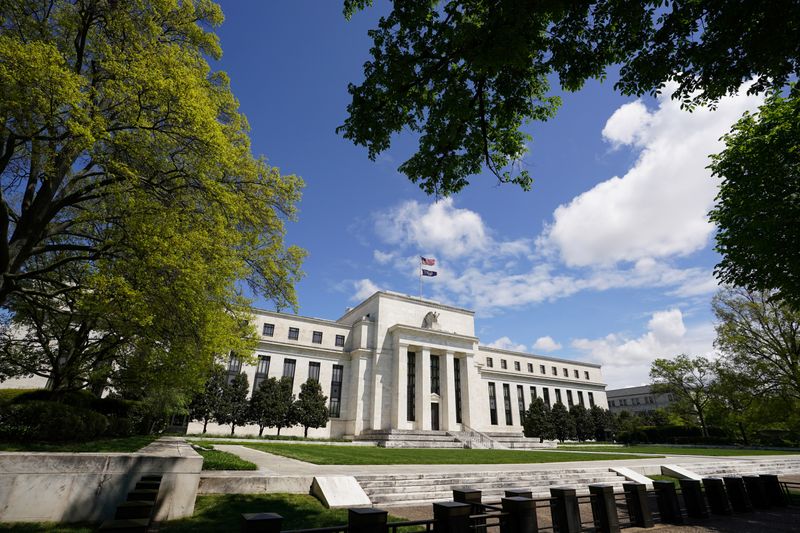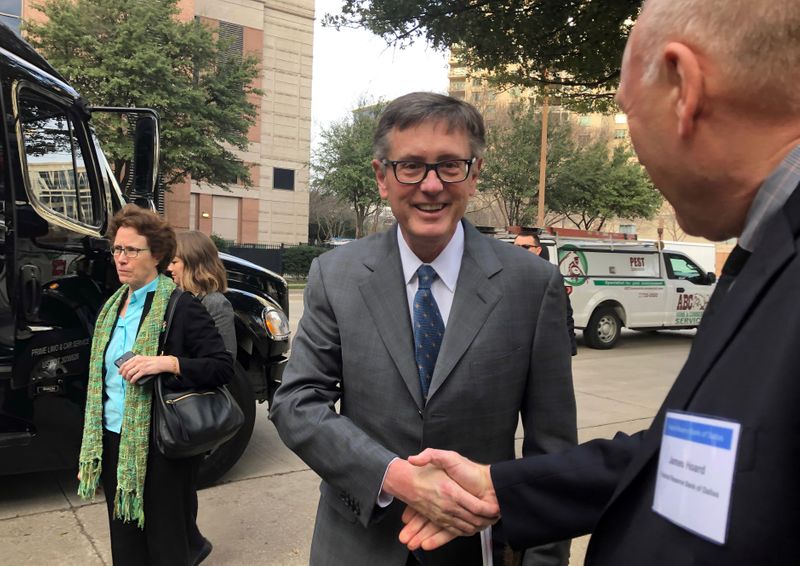By Jonnelle Marte
NEW YORK (Reuters) - A resurgence in coronavirus cases is slowing the economic recovery and the pandemic will continue to weigh on the U.S. economy and American life for longer than initially expected, three Federal Reserve policymakers said on Wednesday.
The U.S. economy began to grow in May and June after taking a monumental hit beginning in March. But growth stalled in July as infections spiked in some parts of the country, leading to fresh restrictions, U.S. central bankers said.
"The issue with the resurgence in the virus is it slowed down or somewhat muted the recovery we’ve been expecting," Robert Kaplan, the Dallas Federal Reserve Bank president, said in an interview with CNN.
The increase in infections has raised the downside risks to the economic outlook and suggests the reopening of the U.S. economy may be more protracted than many initially anticipated, Cleveland Fed President Loretta Mester said in a speech for the Liberal Arts Macroeconomics Conference.
The rising case load offers "a stark reminder that there are several different scenarios that could play out," Mester said.
Jobless Americans and state and local governments will need more aid to make it through the crisis, Kaplan said. Lawmakers missed a deadline last week for extending a $600 weekly supplement to state unemployment benefits, and are in the midst of negotiating another round of stimulus.
"I believe the economy needs a continuation of the unemployment benefits," Kaplan said. "It may not need to be in the same form as it currently is, but we need a continuation."
Mester also said more fiscal support is needed to bolster struggling businesses, households and consumers, and she said she was hopeful that Congress will pass a stimulus bill.
"The country has a responsibility to help them over that, to bridge that period, until we can get the economy going again," Mester said during the webinar.
While U.S. economic growth slowed in July, it could pick up in the third quarter and reach pre-pandemic levels by the end of next year, Federal Reserve Vice Chairman Richard Clarida said on CNBC.
"It will take some time, I believe, before we get back to the level of activity that we were in February before the pandemic hit," Clarida said.
Clarida said his personal forecast for the economy hasn't changed because of the recent resurgence of the virus in the United States, since the economic momentum from May through early July was stronger than he expected. He also expects support from another fiscal package should even things out.
Kaplan forecast that for the 2020 full year, the economy will contract by 5%, while Mester forecast a contraction of 6%, from the end of 2019.
Fed officials pledged at their policy meeting last week to do what they can to help the economy rebound from the recession that began in February as the coronavirus outbreak spread across the globe. The U.S. central bank has cut interest rates to near zero and rolled out roughly a dozen emergency programs to backstop financial markets and support businesses.
Asked about the tepid use of the Fed's Main Street Lending Program, which is designed to help small and mid-sized businesses, Clarida said the facilities are meant to serve as backstops and that officials are open to changing the program if needed to reach more businesses.
"I do expect activity in the program to pick up," Clarida said. "We're focused on the goal of supporting the economy and if we need to adjust our programs we will do so."

Mester also said Wednesday that she supports making more adjustments to the Fed's facilities if needed. "Given the nature of this shock to the economy, I'd be prepared to take more credit risk than I would have been in the past,” Mester told reporters.
